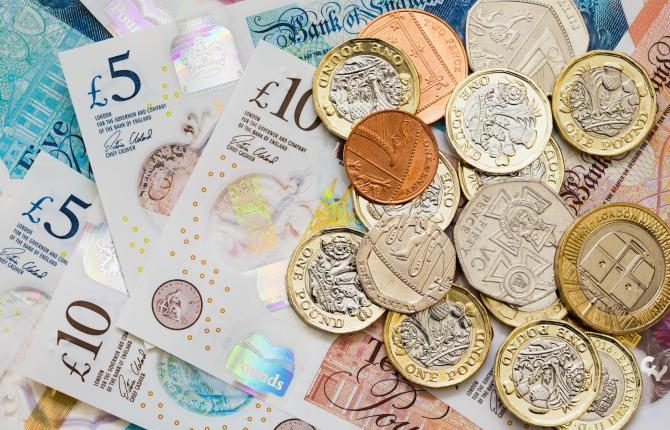MILLIONS of workers will get a £1,800 pay rise next year, Chancellor Jeremy Hunt has confirmed in the Autumn statement.
As of April next year, the National Living Wage for those over 21 will rise from £10.42 to £11.44.
The Autumn Statement provides an update on the government’s plans for the economy and includes spending changes.
These are issued twice a year, once at the Budget in the spring and once at the Autumn Statement.
The increase was announced on Tuesday but confirmed again by the Chancellor today.
It’s the biggest hike to the minimum wage for a decade and for the first time will apply to over-21s, rather than over-23s.
Read more on Money
Mr Hunt said: “Next April all full-time workers on the National Living Wage will get a pay rise of over £1,800 a year.
“That will end low pay in this country, delivering on our manifesto promise.
“The National Living Wage has helped halve the number of people on low pay since 2010, making sure work always pays.”
Almost three million workers should expect to receive what is almost a 10% boost to their pay packets.
Most read in Money
The minimum hourly wage for an apprentice is also set to increase from £5.28 to £6.40 an hour.
The Chancellor added: “People who get up early, put in the hours and work hard for their families deserve to be paid fairly.
“Since 2010, those on the minimum wage – now the National Living Wage – have seen their hourly wage go up from £5.80/hour to £10.42/hour.
“That’s a real terms increase of more than 20%.”
This latest increase means that next year a full-time worker on the National Living wage will see their take-home pay after-tax go up by 30%.
The National Living Wage and the National Minimum Wage are both rates of pay set by the government.
In his Autumn Statement Jeremy Hunt announced:
Which one you get, and how much you get, depends on how old you are and we explain below.
The National Living Wage is the legal minimum employers have to pay workers aged over 21, it was previously over 23.
The rate is currently £10.42 an hour but this will rise to £11.44 in April.
The National Minimum Wage is the minimum amount that workers under 21 (but of school-leaving age) are entitled to.
Exactly how you get depends on how old you are.
Here are the new rates that will be implemented from April 1, 2024:
- Those aged 21 and over will get £11.44 rather than the current rate of £10.42
- For 18 to 20-year-olds, the rate will be £8.60, an increase of £1.11 on the previous wage of £7.49
- 16 to 17-year-olds will get £6.40, an increase of £1.12 on the previous rate of £5.28
- The apprentice wage will also increase to £6.40 from £5.28
The Labour government implemented the first National Minimum Wage in 1988.
It originally applied to workers aged 22 and over, and there was a separate rate for those aged 18-21.
A separate rate for 16-17-year-olds was introduced in 2004, and in 2010, 21-year-olds became eligible for the adult rate of the NMW.
The rate is set by the Government each year based on recommendations by the Low Pay Commission (LPC).
Who gets the National Minimum Wage?
In order to qualify for the National Minimum Wage, you have to be of school-leaving age, usually above 16.
You are eligible to receive the pay rate if you work full-time, part-time or as a casual labourer – for example, someone hired for one day.
You are also entitled to the National Minimum Wage if you are an agency worker or someone paid by the number of items you make.
Apprentices, trainees and staff who are still in their probationary period also qualify for the National Minimum Wage.
The rates also apply to disabled workers.
Anyone who thinks they are not getting paid fairly should raise the issue with their employer in the first instance.
If this is not effective, the next step is to file a complaint on the government’s website.
Employers who do not pay the minimum wage can be publicly “named and shamed”.
Those who blatantly fail to comply are also at risk of facing criminal prosecution.
Which workers do not qualify for the National Minimum Wage?
Not everyone is entitled to receive the National Minimum Wage.
Self-employed people, voluntary workers, company directors, and family members who live in the home of the employer and do household chores do not qualify for the rate of pay.
Au pairs, members of the armed forces, and people on a government employment programme are also not entitled to the payment.











